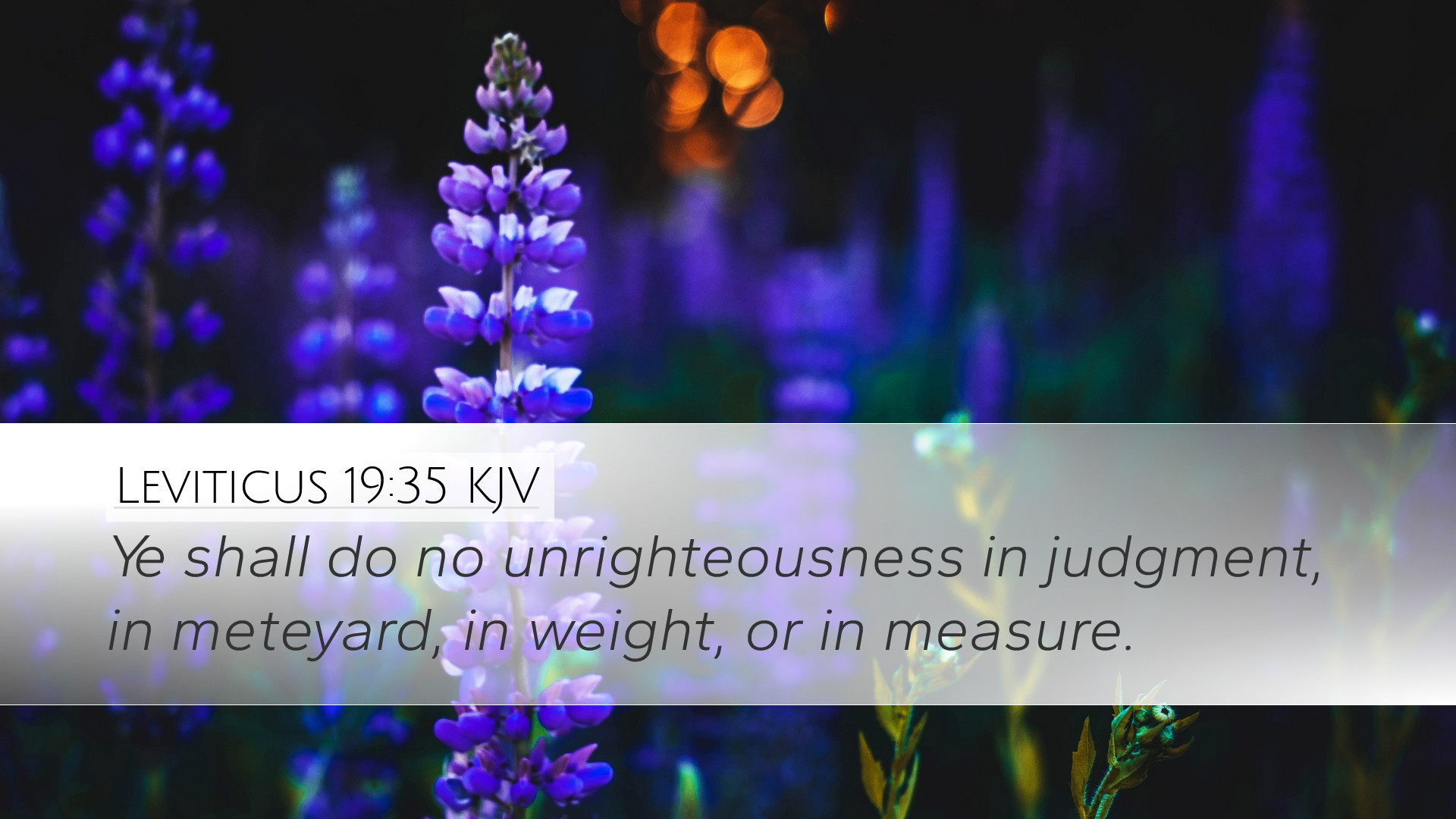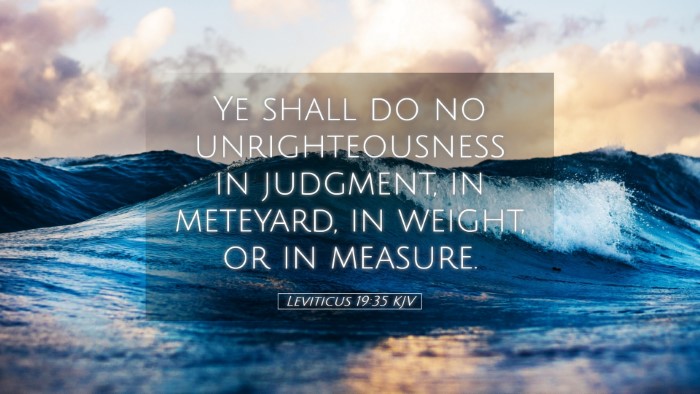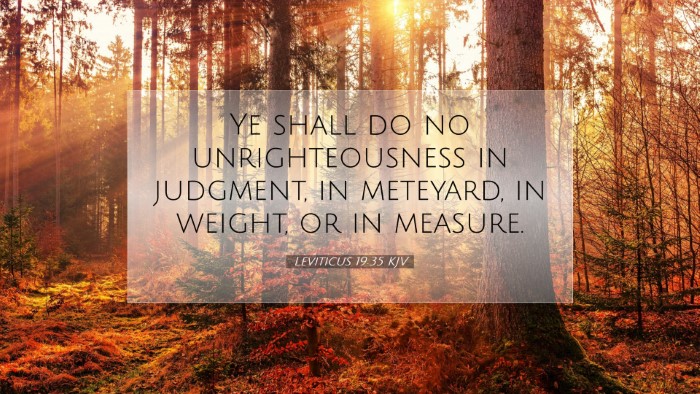Commentary on Leviticus 19:35
Verse (Leviticus 19:35): "You shall do no injustice in court. You shall not be partial to the poor or defer to the great, but in righteousness shall you judge your neighbor."
Introduction
This verse is a part of the Holiness Code within the book of Leviticus, which lays down laws concerning social justice and ethical conduct in the community of Israel. It establishes guidelines that reflect the character of God while promoting fairness and equity among the people.
Exegesis
The command here centers on the integrity of judicial proceedings. The underlying principle is to observe the noble virtue of justice in all dealings, especially in matters of judgment. The verse warns against bias, whether toward the poor or against them, emphasizing equality before the law.
Key Themes
- Impartiality in Justice: The instruction is clear; the moral law governing Israel's community demands impartiality. Both Matthew Henry and Albert Barnes highlight that justice must not be swayed by a person’s social status.
- Righteous Judgments: Adam Clarke emphasizes that righteousness is non-negotiable in judicial contexts and serves as the foundation for all judgments made within the community.
- Community Integrity: The call to justice fosters a sense of community integrity, meaning that righteousness is paramount for societal health and well-being. This thought is echoed in many commentary works, where it’s noted that standards of justice must reflect God’s character.
Commentators' Insights
Matthew Henry
Matthew Henry expounds on the necessity of impartiality, asserting, "It is no less a sin to show respect to the poor than to the great. Justice must be based not on social status but on truth and equity." He emphasizes the weight of God's law in relation to moral governance and reminds readers of God’s expectation for a just society.
Albert Barnes
Albert Barnes observes the significance of the directive, stating that true justice is the equal treatment of all individuals. He argues, "Judges must be on guard not to let income, class, or notoriety influence their decisions; every individual must be treated with fairness." He lays out the principle that the law exposes the heart's condition, advocating for a spirit of humility and fairness when administering justice.
Adam Clarke
Adam Clarke elaborates on the practical implications of this command, noting that judges must consider "the rights of the poor equally with those of the wealthy." He highlights that God’s laws are designed to protect the vulnerable whilst maintaining accountability and integrity within the judicial system.
Theological Importance
This verse holds significant theological implications, as it reflects God's nature as just and righteous. The need for justice in the church today echoes the commandments introduced in Leviticus. Observing justice, impartiality, and integrity ensures that the Christian community resembles the values of God’s kingdom.
Reflection on Application
The enduring principles drawn from Leviticus 19:35 can guide pastors and theologians in their dealings within the church and community. Practicing impartiality in judgments serves as an antidote to societal ills such as discrimination and injustice. The call is further to foster an environment where truth prevails over preference.
Conclusion
In summary, Leviticus 19:35 stands as a timeless precedent, urging adherents to embrace justice wholeheartedly. It challenges readers to embody the essence of impartiality in all facets of life, thereby aligning with the divine mandate for holiness and righteousness. As believers seek to live out these principles, they bear witness to God’s character, ultimately reflecting His glory in the world.


